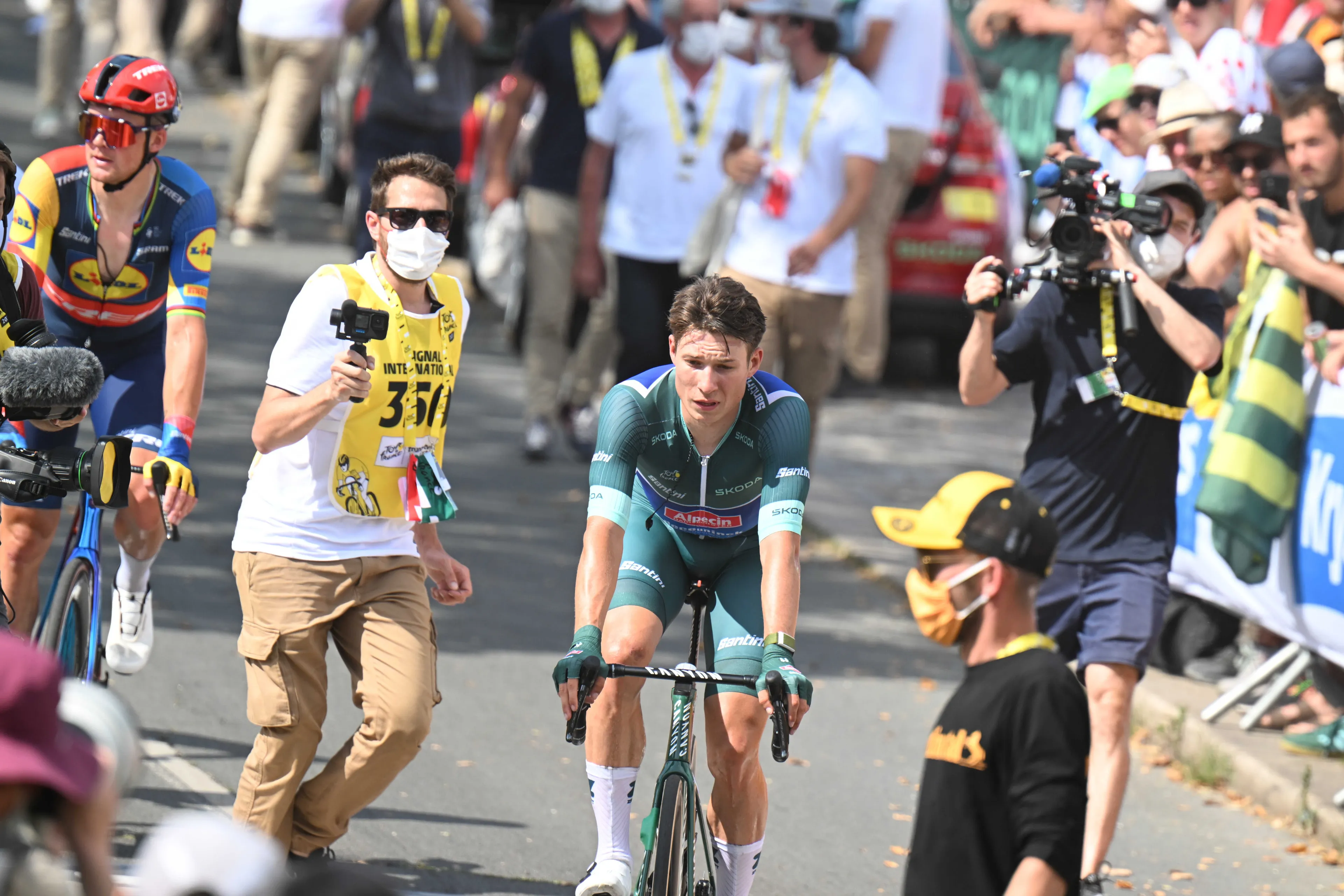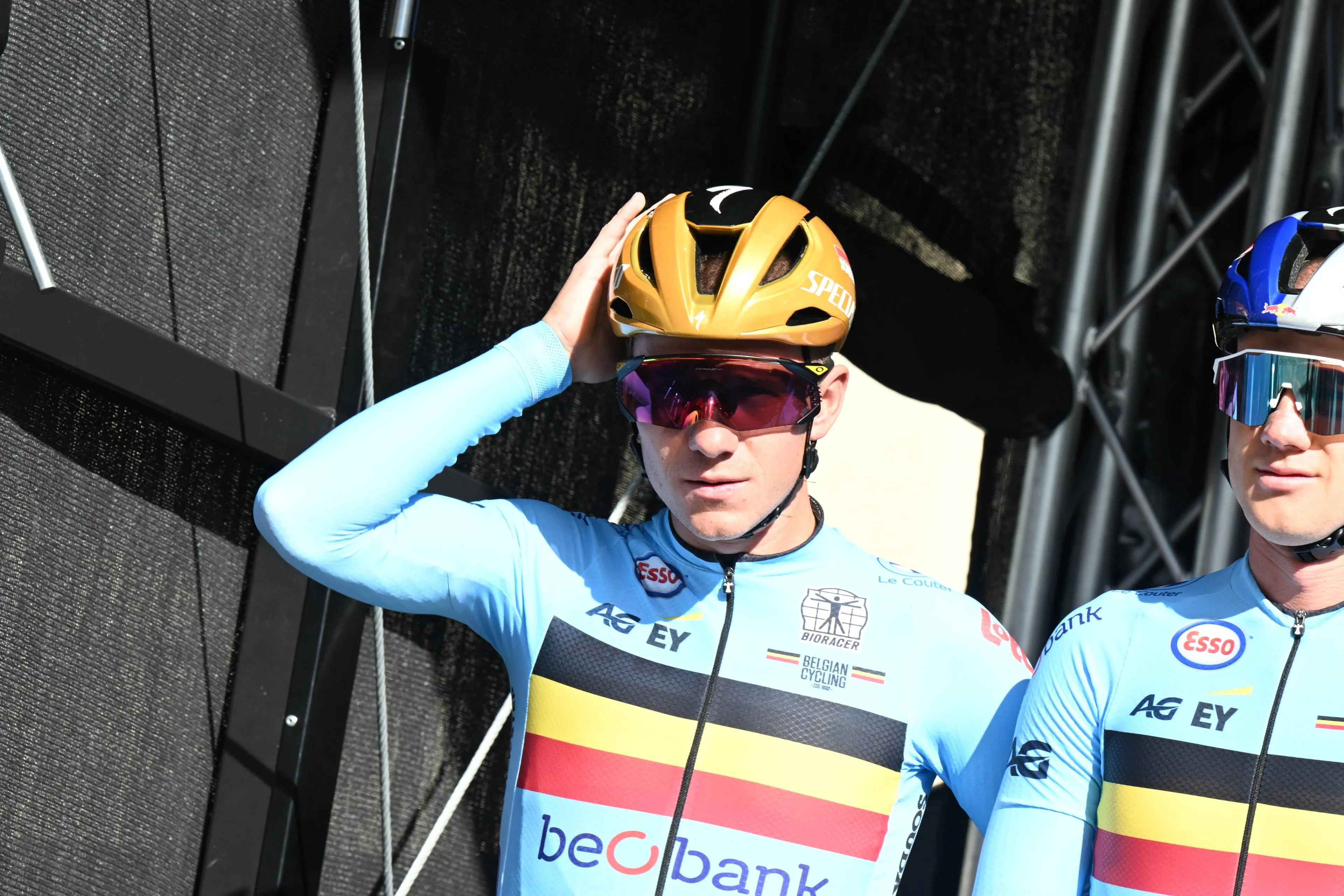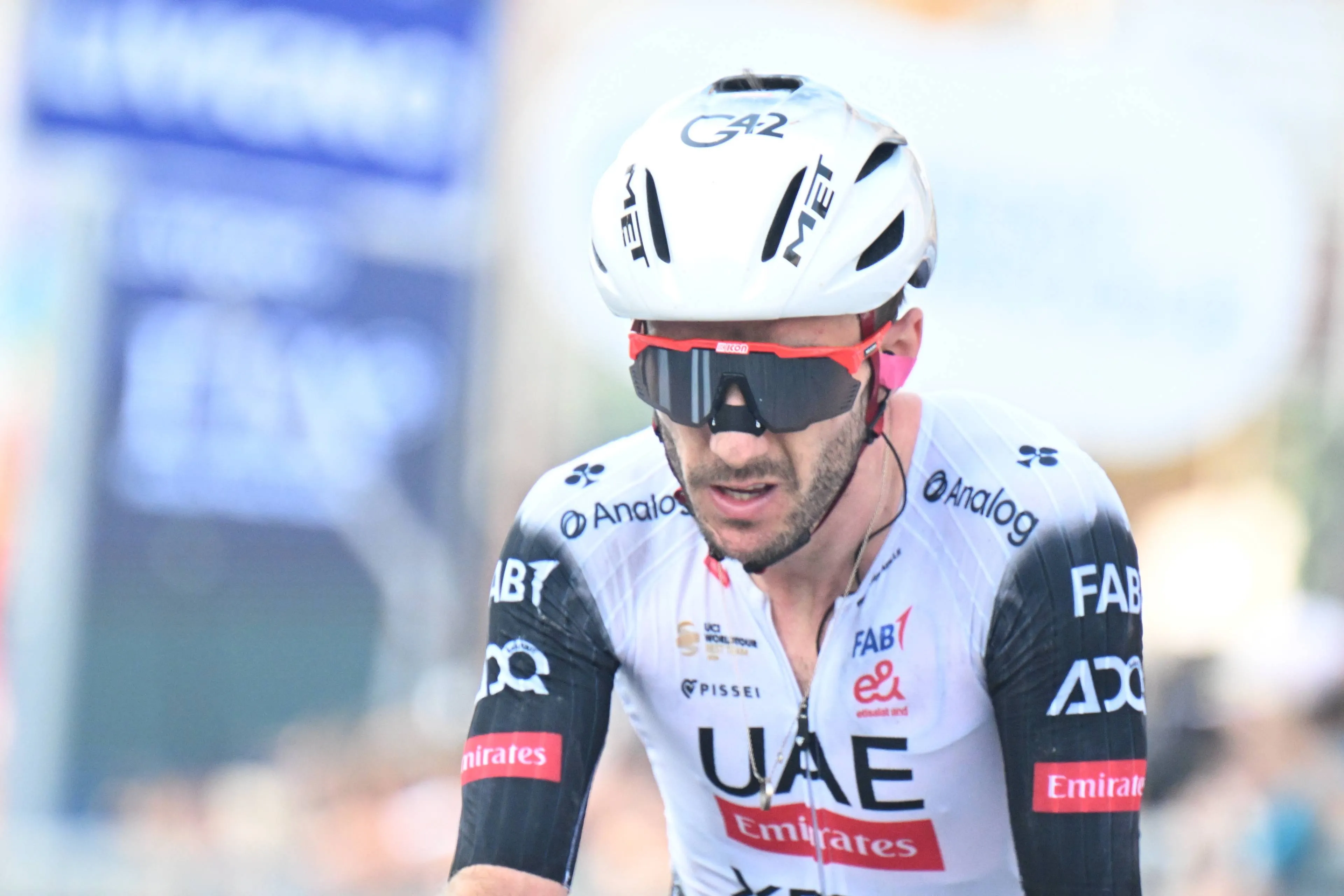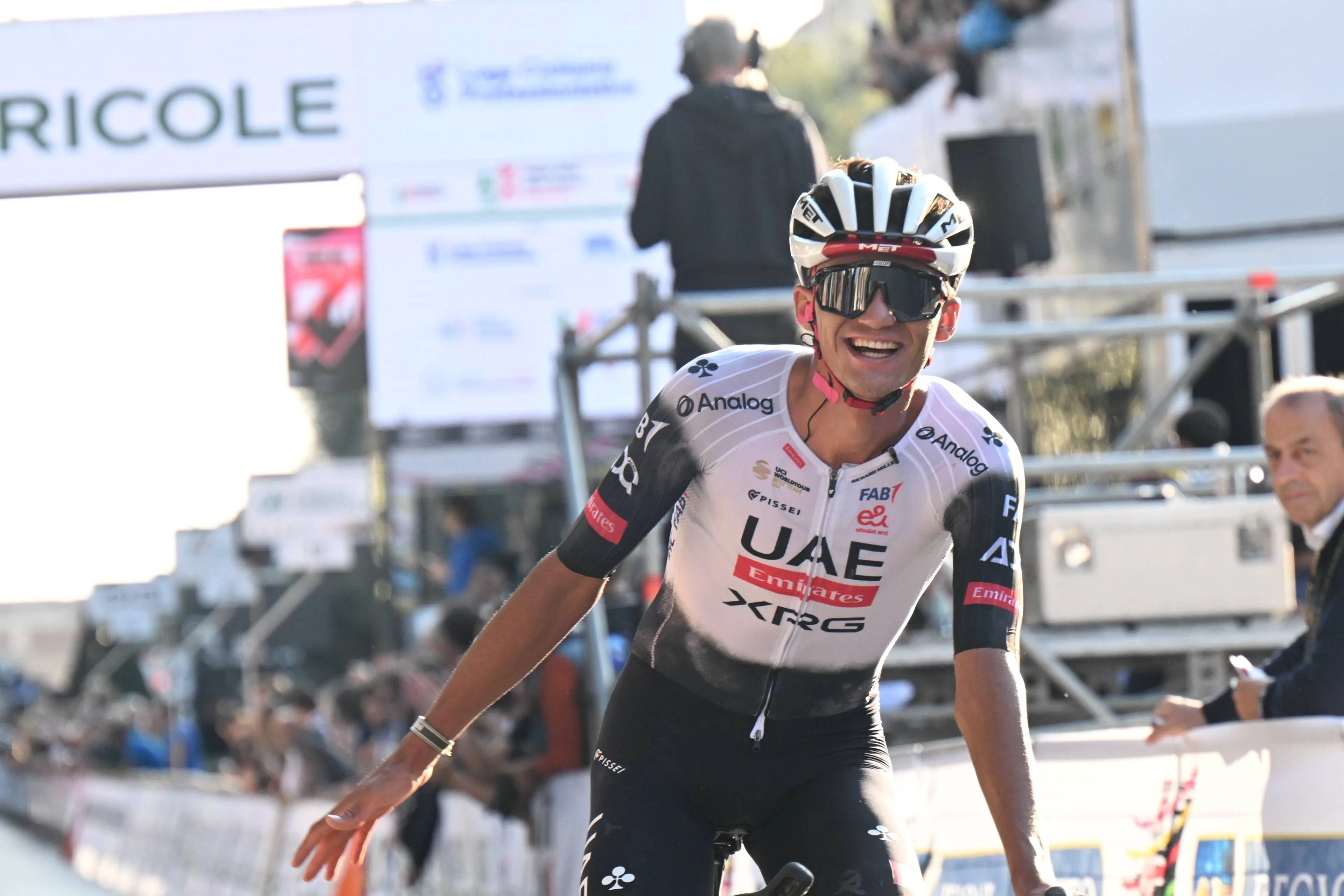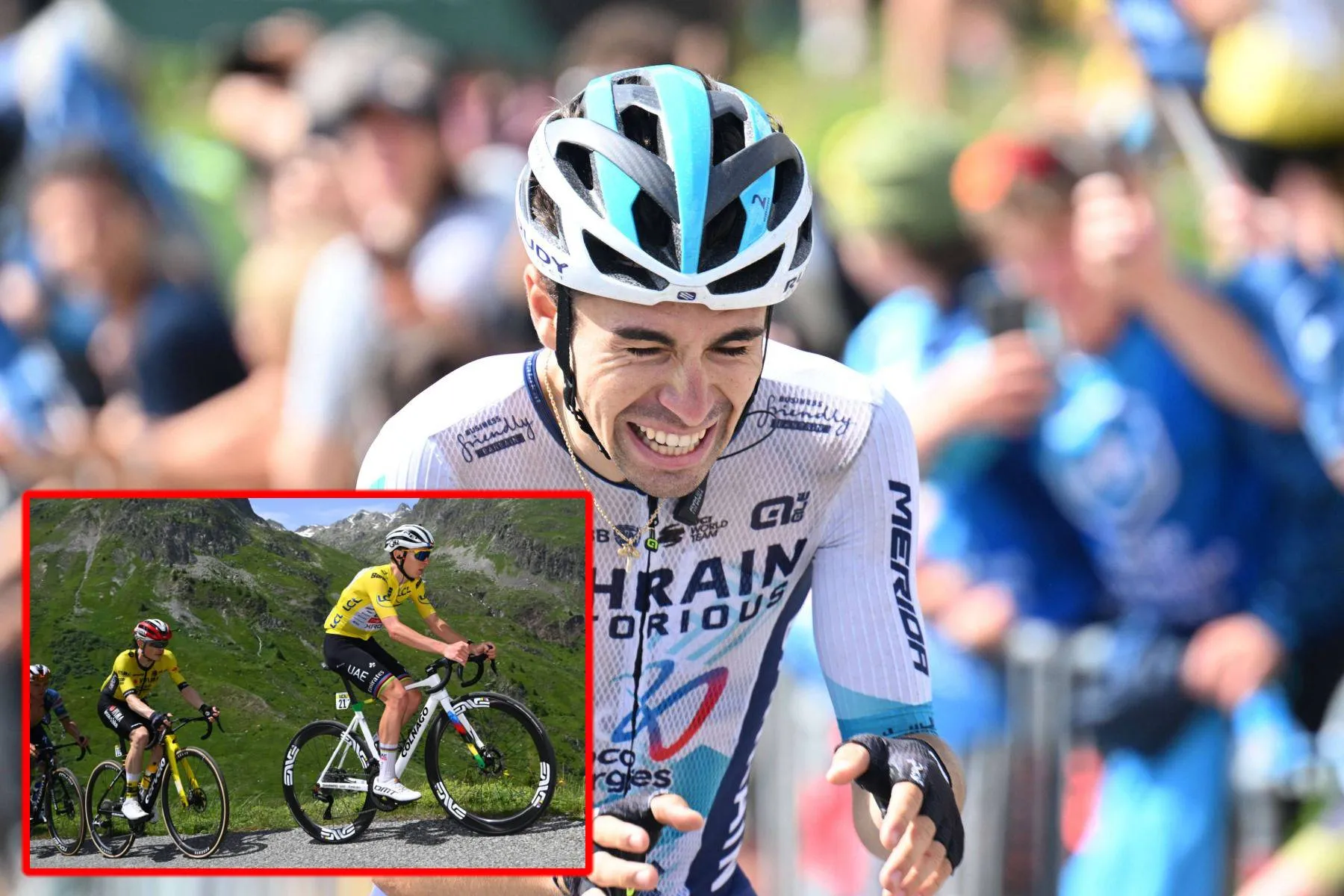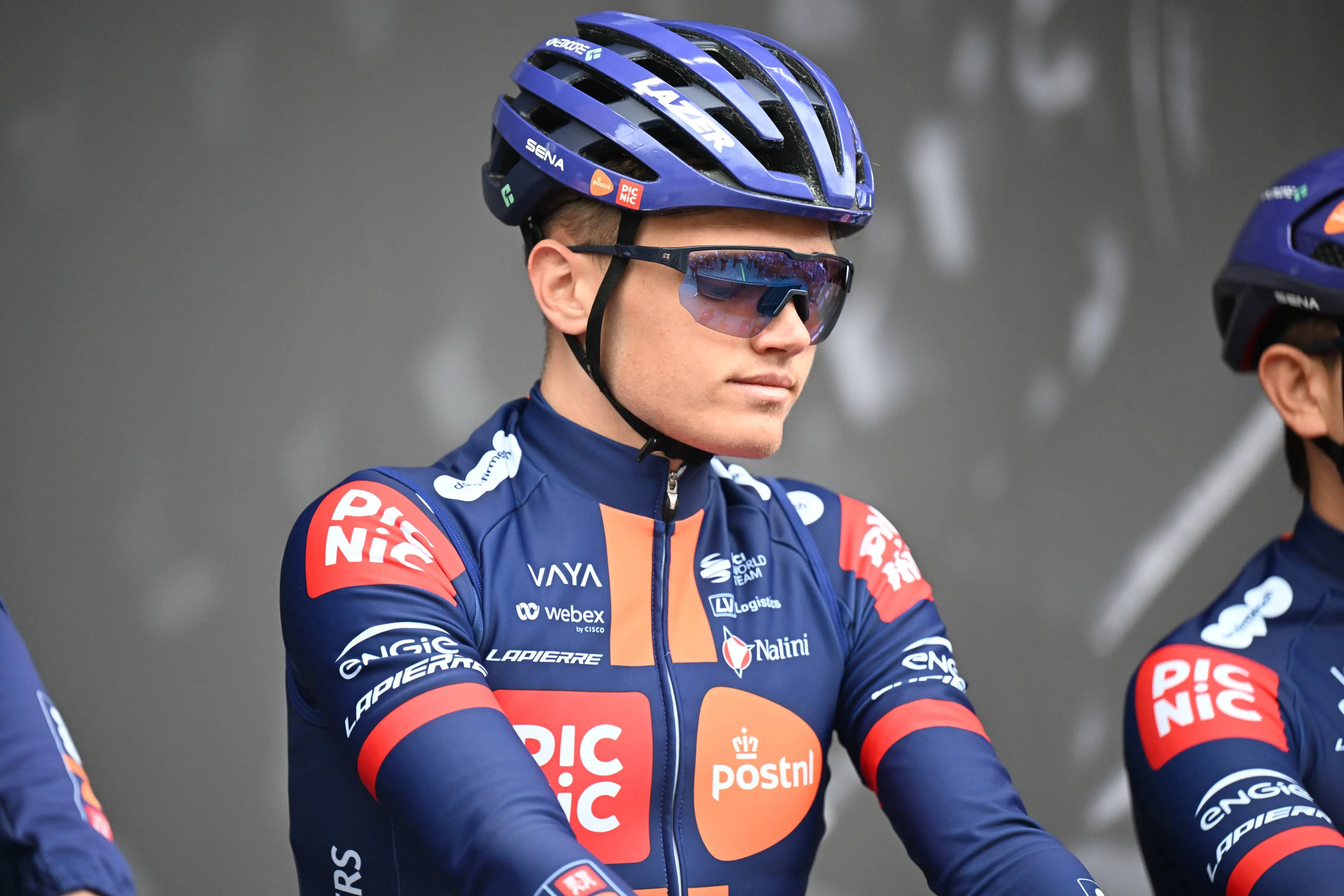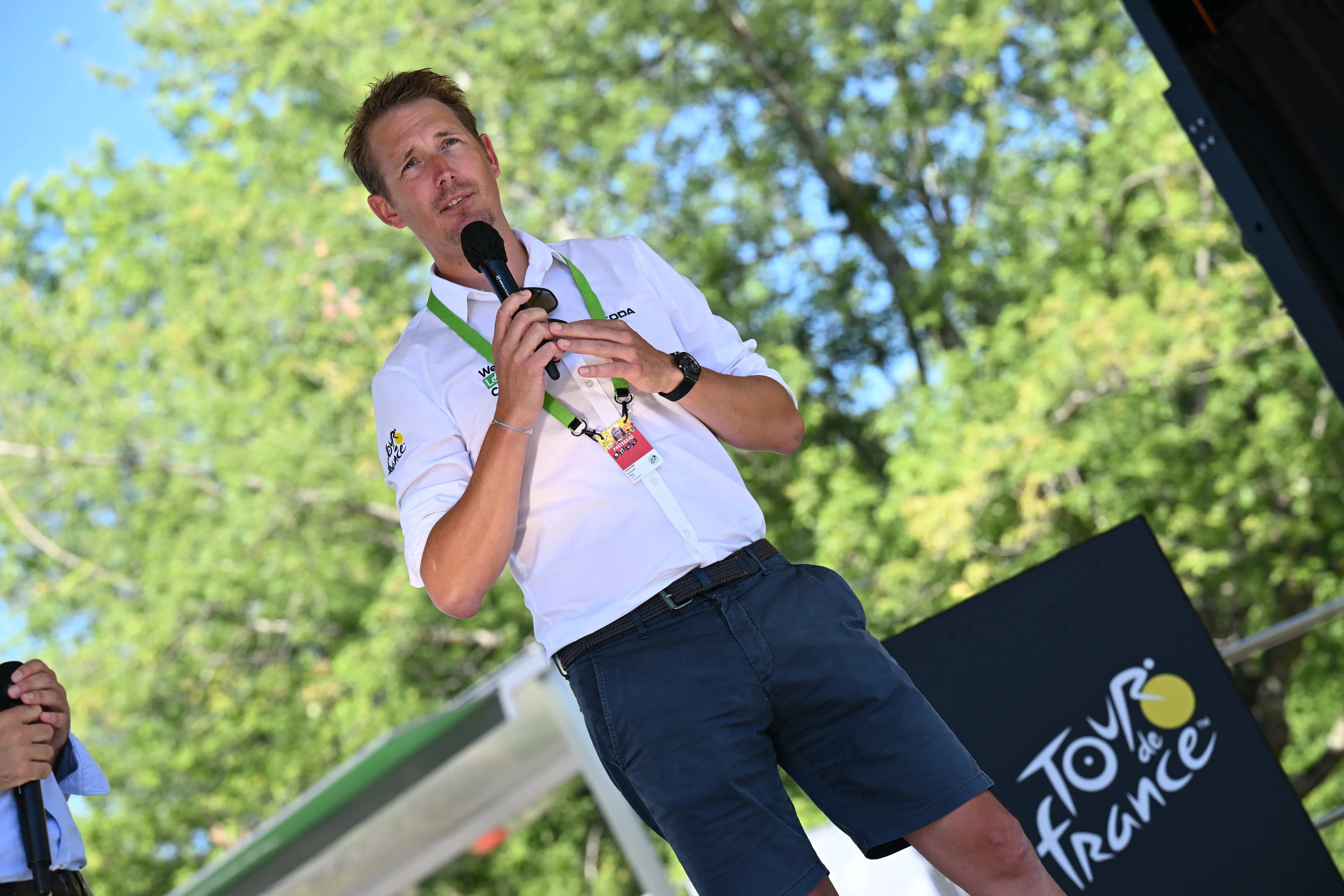Introducing Rui Costa - Former World Champion and veteran stage hunter
CyclingTuesday, 07 November 2023 at 23:58
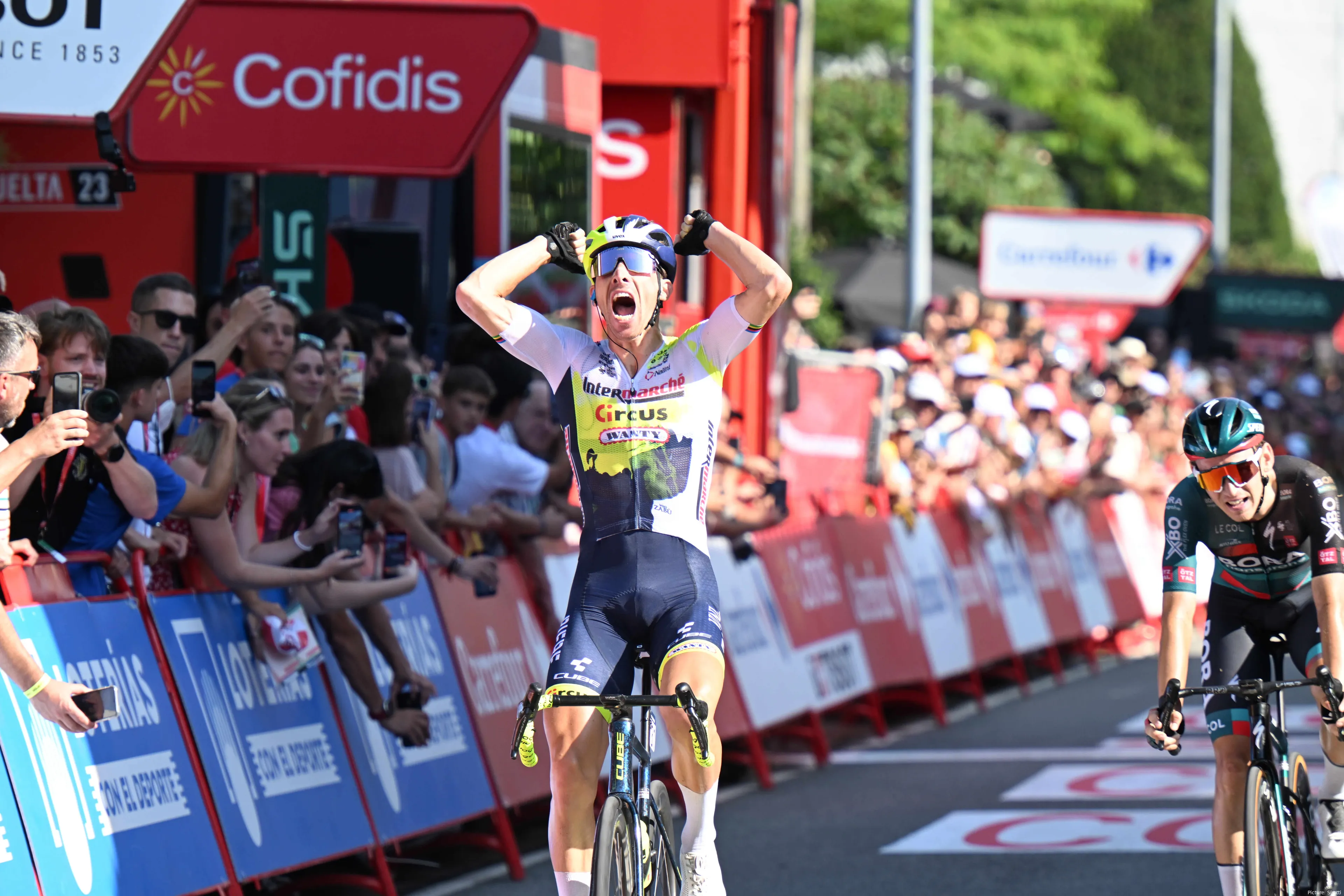
Rui Costa is a Portuguese cyclist who races for the Intermarché-Circus-Wanty. He has become one of modern cycling's most prominent stage hunters and was notably the World Champion in 2013.
Name: Rui Costa
Birthday: 5th October 1986
Birthplace: Póvoa de Varzim, Portugal
Turned Pro: 2007
Height: 1.83m
Data powered by FirstCycling.com
You can follow the developments at all times by clicking here. Rui Costa was born in the small town of Aguçadoura in coastal northern Portugal and is a leading figure in Portuguese cycling. When he was 11 years of he began competitive running and when he was then 13 he tried out cycling. Sure enough he showed talent within the youth ranks, where he raced for some of the country's most prestigious teams, and turned professional in 2007 with the Benfica team, at the time part of the national continental scene - but in 2008 turned Pro Continental, which saw him immediately rise up the ranks of cycling.
In these two years Costa was able to show off his attributes in the pro peloton both at elite and under-23 level, winning the Giro delle Regione in Italy in 2007, and in 2008 ending the season with great form as he finished second at the Tour de l'Avenir only behind Jan Bakelants. He rode to eighth at the time-trial World Championships and fifth at the road race. In 2009 he signed with Caisse d'Espagne (now known as Movistar Team) quickly taking the step into the top level of cycling in his first year as an elite rider. Costa had a mostly domestique role this year, but he stormed to GC victory at the 4 Jours du Dunkerque and a stage victory at the Vuelta a Chihuahua Internacional.
In 2010 Costa asserted himself as a reliable member of a World Tour structure. He won the Deià Trophy early in the season and besides a few GC results, won a stage at the Tour de Suisse - a race that would mark his career significantly later on. After winning the time-trial national championships he made his Tour de France debut where he famously had a brawl with Carlos Barredo - although at the time the rules were looser and none were disqualified. In 2011 Costa was the winner of the Vuelta a la Comunidad Madrid and then had a breakthrough. At the Tour de France he won stage 8 into SuperBesse and broke through the headlines. Later on in the year he'd take another World Tour triumph at the GP de Montréal, asserting himself as a strong puncheur.
In 2012 he won the Tour de Suisse, a very important triumph that also propelled him as a strong figure when it came to the one-week stage-races. Alongside that victory he also finished in the podium of the Tour de Romandie, and other World Tour classics such as the GP Plouay and the GP de Québec. Then came 2013, perhaps the peak of his career. Costa won the Klasika Primavera de Amorebieta and then once again thrived in Switzerland, for a second year in a row finishing third at the Tour de Romandie and first at the Tour de Suisse.
Read also
His run of success was just starting however. Costa was once again victorious at the Tour de France, this time around on two different occasions. Both times from breakaways on montainous days, the Portuguese won solo off the front on stages 16 and 19 to Gap and Le Grand Bornand - two famous locations in the race's history. The highlight of his season - and career - however would come later in the year. Costa was an outsider for the World Championships in Firenze, but took the victory. He took advantage of the rainy weather which he loved to beat Joaquim Rodríguez and Alejandro Valverde after a brutal day on the bike, taking the rainbow stripes in Italy that would change the course of his career.
Costa signed with Lampre-Merida into 2014 where he'd find more leadership. Further podiums at the Volta ao Algarve and Paris-Nice, alongside a third consecutive Tour de Suisse win, led him to believe in his future as a Grand Tour contender. It was an interesting step to take and one he attempted at the Tour de France. However, as several others did that year, he succumbed to illness due to the bad weather during the second week. He still finished on the podium of the GP de Montréal and Il Lombardia to conclude another successful season. In 2015 he had to abandon the Tour de France once again which ultimately ended his Grand Tour ambitions. Nevertheless, he finished on the podium of the Critérium du Dauphiné and GP de Montréal, and was extremely close at Paris-Nice, Amstel Gold Race and Liège-Bastogne-Liège.
In 2016 younger generations began to appear and Costa's prominent role as a winner began to fade, as he did not win for the first time since turning professional. He did finish on the podium of Liège-Bastogne-Liège and in the Top10 of several big races however, maintaining a high position in the UCI rankings. In 2017 Lampre was renamed UAE Team Emirates. He got back his winning ways, winning the queen stage of the Vuelta a San Juan and one month later the queen stage and overall classification at the World Tour Abu Dhabi Tour. After 8 consecutive Tours de France Costa finally experimented a different schedule, racing both Giro d'Italia and Vuelta a España - not winning in neither, but finishing second on three occasions in Italy.
Read also
Although he had his freedom the results continued to fade, 2018 was a year without a real highlight where he had a few Top10 results on the big stage, and did not race a Grand Tour. In 2019 he finished second in the Tour de Romandie, nevertheless his consistency saw him every year finish within the Top100 of the UCI rankings. In 2020 he won a stage at the Saudi Tour and the national championships, he wasn't successful in taking a win at the Vuelta a Espana late in the year although he was close. His role developed into that of a domestique in 2021 and 2022 with UAE, specially with the growth of Tadej Pogacar. Costa's experience made him a valuable asset for upcoming riders in the peloton.
Hence in these two years he did not particularly score big when it came to individual results but assisted the team towards collective success. However he decided to make a change into 2023, signing with Intermarché-Circus-Wanty. The Belgian team seemed an unusual fit but proved to be perfect. Very quickly Costa took his first win in two and a half years at the Trofeo Calvia. Then came the Volta a Comunitat Valenciana, where he beat World Tour competition to win the final stage and overall classification.
The Portuguese was back. He struggled with form in the spring and the Tour de France but made the request to be part of the Vuelta a Espana too. There he took his first Grand Tour stage win outside of the Tour, on stage 15. Costa outsprinted Lennard Kämna and Santiago Buitrago, and then won the Japan Cup to close off the season with a bang.
claps 2visitors 2
Just in
Popular news
Latest comments
- If she was Dutch or Belgian she'd have already sorted a team out. Unfortunately, the CX teams are pretty insular to 'foreigners' and would rather give a spot to a local rider. And that is one reason why the sport is niche outside its heartland.wipperman9519-12-2025
- Dear Editor: It is no humiliation to make the final, even with two riders, and not get it perfect against another talented rider. Disappointment, sure.itsent18-12-2025
- I luv this guy ,so honest puts the hand up ..."my fault.".. I would be stoked to see him win his big monuments ... i think he would be a great team mate and friend.Davide18-12-2025
- In his years in the peloton, Evenepoel has had several major crashes that could have ended another person's career. In that, he is sadly similar to Roglic, whose crashes have had a huge impact on his still impressive palmares. I'd say the first thing that needs to happen is that everyone make it to the Tour safely. At that point? I don't think they stand a chance against the UAE engine, and the man who is only now (seriously?!) coming into what used to be the age of maturity, refinement, and full bodily development.RidesHills18-12-2025
- It must be hard for him to let go...somewhere in his mind he sees himself competitive. The reality of his entire time at IPT tells a different story altogether.Crashjames18-12-2025
- Not only that, but aside from JV, no one has remotely come close to Tadej level, and I seriously doubt Remco or Lipowitz will be there next year in the finales. That said, a lot can happen on the road in the next year, and I hope it's an epic battle among all of the top 10 finishers. It's a little anticlimactic to watch Tadej ride everyone off his wheel, even if it is super impressive to watch.Crashjames18-12-2025
- He couldn't finish in the top 100 at Unbound Gravel. He might be able to hold the wheel in a cat 3 crit but even that's debatable. Not being facetious.paule18-12-2025
- It isn't just the 5 million euros a year. It's also the never-ending hospital bills. Two weeks to go for Sylvan Adams to get out from under this mess.paule18-12-2025
- LOL, Del Toro, while very strong, is not currently racing at a level higher than Remco or Lipowitz. He can be by 2027 though and probably will be. You are discounting Remco's season this year, which his underperformance was caused by a crash that would have retired most people. He will be very strong this coming year as long as he keeps the rubber side down.awp18-12-2025
- It would be nice to see him have a healthy season and do well.JoeyB18-12-2025
Loading
Write a comment

